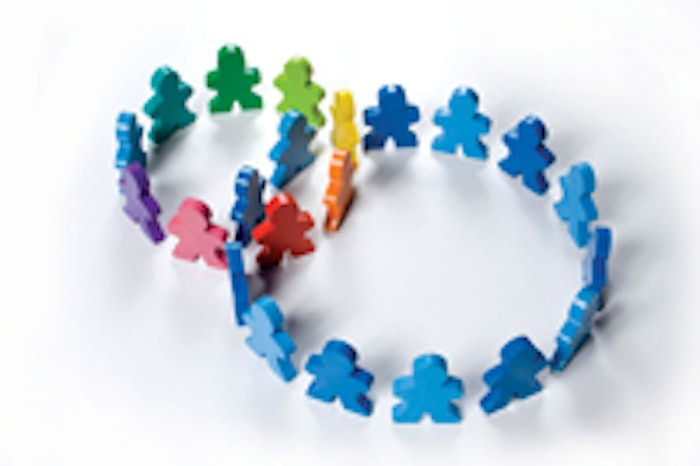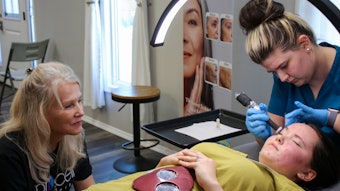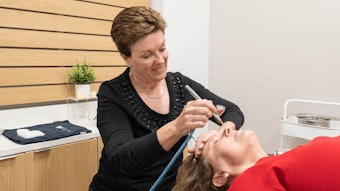
Recently, when I was delivering a seminar to a large group of spa owners, I mentioned the necessity of building a strong teamwork culture.
One of the attendees, in a quite abrupt manner, said she was fed up with hearing about teamwork; she only wanted to learn a foolproof formula to obtain good employees and then to be able to keep them for the long term and not just for a few months. From her attitude, it was obvious why she might have trouble finding good team members, let alone retaining them.
No one has a foolproof formula for every staff management issue that comes up, but there certainly are ways and means that can be adopted to provide the best possible outcomes for finding and keeping high-quality employees. In fact, good spa management often attracts quality applicants. Because this is a small industry and many estheticians know each other, the word quickly gets around about which companies are good to work for and which ones aren’t so good. Although finding the right employees is an obvious goal, creating an environment in which they want to continue working is also vitally important.
A variety of skills
In a team-oriented environment, every member contributes to the overall success of a business. What you may not know is that building an effective teamwork culture takes a variety of skills and input from management all the way down to the most junior team member. From a management angle, it requires a manager to have an understanding of human nature and to realize that not everyone is alike—and what a boring world it would be if that were the case. Managers must be able to show respect to every employee and to communicate directives or information well, while leading by example, and inspiring and motivating the team as a whole. But employees also must contribute and understand that to be good team members, they have to like working as a team. This is not always the case, as can be seen with some diva employees who want to run their own race. This can be a problem that needs to be resolved before you are ever able to obtain the team your business needs to succeed.
A strong leader
Although there is a wide variety of theories about how to develop a strong teamwork culture, all agree there needs to be a strong leader; one who realizes her key role involves coaching team members to achieve their best. Now the problem here is that, although most spa owners and managers know this, there are very few who take the time to do it. And although there are many reasons why this doesn’t happen, by far the most common is that owners or managers are too busy treating their own clients, doing the book work and performing all the other little tasks necessary to keep the business’s doors open.
In the busy life of an owner or manager, something often has to slip because there are only so many hours in a workday and most can’t stretch the time any farther. This could easily be compared to many modern-day family situations. Due to necessity, most women hold down full-time jobs, run the home, care for the family and generally try to be a superwoman. If this goes on too long, often the kids, who may be left to their own devises, can become difficult to control, stop doing their homework and household chores, and begin picking fights with each other. Without constant guidance, this can be what happens to employees, as well. Unfortunately, a good teamwork culture won’t exist unless a leader invests the time into making it work.
Employee inclusion
What comes next in the process? Well, team failure most often happens to teams that don’t really know where they are going or even why they are heading that way. Don’t keep your employees in the dark; be up front about where you want the business to go and what part you see them playing in the overall plan. If they clearly understand the vision you have for the business, you will be amazed at how uplifting this can be for them. They will have a stronger purpose because they now know the big picture, and that their role is very important. You will have a team with a shared purpose, complementary skills and a commitment to reach its goals.
It is common knowledge that all work and no play makes for very dull girls and boys, so be sure to realize that the best teams need to have a little fun every now and then. They need to let off steam, kick back and enjoy themselves. They should love coming to work and should enjoy telling a joke with each other because a good laugh makes the work day much more pleasant. People who like each other always work well together.
Once people enjoy working together, they will be happy to listen to the opinions of and respect the feelings of each other. So, it is important to ensure that the work environment offers a safe and secure place for team members to share and cooperate with each other. Everyone must be prepared to pitch in, fill in for each other and share the workload for the sake of the team and because they understand that the work must be done.
A clear plan
If you have a good team on board, your business will be propelled quickly toward its goals, but very clear plans must be set. For instance, if the goal is to increase retail sales by 25% during the next three months, an action plan would need to be put in place in order to achieve it. Develop a flowchart laying out the steps, the resources required and any necessary training involved. This will show the team how they will be able to achieve the 25% retail increase without being left to muddle through. The most effective teams require contributions from all members, measured by specific performance expectations. By explaining their roles, each team member will be empowered, inspired, committed and motivated by the action plan.
Remember, “team” means together everyone achieves more; consider making this your team’s mantra. A manager’s job is to take great individual estheticians and make them into a team that operates as one.
Delegation
Sometimes, spa teamwork culture fails in cases where the leader finds it hard to delegate. If a leader wants to be the one who makes all the decisions, although she has good intentions, the spirit will be gradually squeezed out of the team. For the team to survive and grow, its members must be allowed to be involved in problem-solving and decision-making, especially if the outcomes are likely to affect them. Although the leader is the ultimate decision-maker, in order to keep employees committed, they need to be accorded a balanced participation in the decision-making process.
However, ground rules must be set and should apply to all. Management must and should provide all the necessary tools for any projects undertaken by the team, and should be available for guidance and coaching. Team members must be prepared to commit to the self-discipline necessary to complete tasks to the expected high level and be responsible for their own actions.
Reach new heights
Remember the spa owner mentioned at the beginning of this article with the aggressive staff management style? Motivation comes down to two main driving forces: fear or love. The fear method of staff management has long had its day, and if you try to control your employees by fear, you will be on the ever-rolling wheel of training, and then quickly losing staff. Your challenge is to inspire your team by creating a work environment of which they love to be a part, and not to have a team full of people who can’t wait until the end of the week so they can get out of there.
In this industry, most spa teams are relatively small in size, but this doesn’t mean they can’t be super-focused, high-energy teams that believe passionately in the work they do and the accomplishments they achieve. But remember, the leader is the pivotal point in a team’s world, and her high expectations and example will encourage the team to reach new heights.










